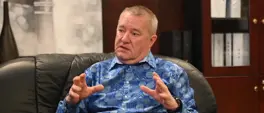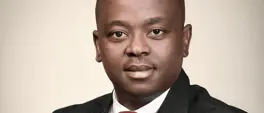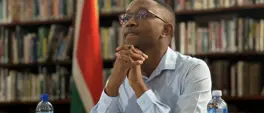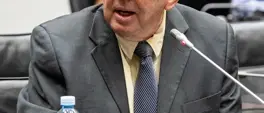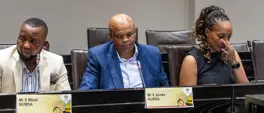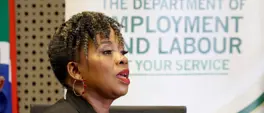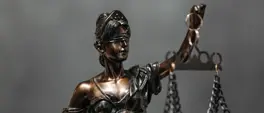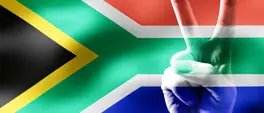JAMIL F. KHAN | Social Media humour around rape reveals dangerous myths about sexual violence and queerness
Jamil F. Khan
23 July 2025 | 13:31'The way that this trial of Diddy has been treated with flippancy and humour signals a disturbing lack of concern for the deeply devastating effects of rape and sexual assault, and violence in general, on its victims,' writes Jamil F. Khan.
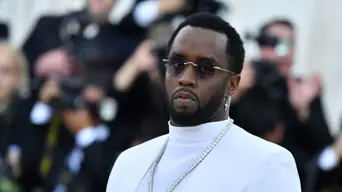
FILE: Sean 'Diddy' Combs arrives for the 2018 Met Gala on 7 May 2018, at the Metropolitan Museum of Art in New York. Picture: Angela WEISS/AFP
The news of American entertainer Sean Combs (known by his stage name, Diddy) settling a lawsuit filed by his former long-term partner Cassie Ventura swept across social media in late 2023. Ventura accused Combs of rape, sex trafficking, and physical abuse.
Following this, a highly publicised trail pursuing charges of racketeering, sex trafficking by force, and transportation for purposes of prostitution commenced in May and concluded in July 2025.
The verdicts, while disappointing to many, handed down judgment on a case that revealed a long list of disturbing sexual practices during what is now referred to as “Freak Offs”. While the courts were deliberating the evidence, the court of social media was in session, with many peddling their own analyses of what they were hearing.
Two revelations from the case have since taken up residence in social media and everyday discourse. The first relates to excessive amounts of baby oil used in these “Freak Offs” as lubricants during acts of sexual violence, while the second relates to the sexual violations involving men who were fellow entertainers and sex workers.
This has now become a very normalised joke, using “baby oil” as a code for rape and sexual assault, while “Diddy” has become a code for identifying gay people or what is considered gay behaviours. This discourse reveals a disturbing trend in social discourse that links gay sexuality to rape and other acts of sexual violation.
Though this is the context in which these links are being made, it is related to a bigger problem in the way rape and sexual assault are understood and subsequently spoken about.
On the one hand, the abuse of power in these dynamics is completely ignored while suggesting that Diddy’s sexual violence is driven by insatiable desire and a sexual interest in men. This idea is driven by a very obvious, ingrained homophobia which is widespread across the globe, but also a disturbing lack of understanding of rape and its causes.
Many people still hold the belief that rape is simply sex that has gone wrong. This belief suggests that rapists desire their victims sexually, and that it involves an extreme form of sexual attraction that cannot be controlled.
Rape is not sex. Without consent, it cannot be sex. Rape is an act of power exercised through force involving sexual organs, that serves to terrorise, subjugate and discipline victims into submission to that power.
It is an act that says: “I have the power to do what I want to you, in the most intimate places of your body which I can control and you have no power to stop me!” It is an abuse of power that serves to disempower victims to such an extent that their bodies are no longer their own. It also serves to discipline others, through the threat that anyone could be next if they do not submit willingly.
As Professor Pumla Dineo Gqola notes in her book Rape: A South African Nightmare: “We all know stories of rape and fear. Many of us live them directly and indirectly. Rape is the threat that the manufacture of female fear promises if we do not keep each other, and ourselves in check. At the same time, the enactment of rape reinforces this fear. When we see other women experience it, and when they are further victimised for having survived it, fear, is reinforced.”
Diddy’s acts of rape and sexual violation, whether committed by him or under his instruction, has nothing to do with his desire or sexual interest in his victims. This is not to suggest that he cannot be gay or have diverse sexual interests, but while it involves the violation of consent and the exercise of power, it is irrelevant to the acts under scrutiny because it is not an expression of sexuality.
It is equally disturbing that these acts have become code for gay sexuality, since queerness is already characterised as a sexual perversion and deviance that justifies the oppression of queer people. This then further feeds into the rape culture that blames victims for their own violation. Nobody deserves rape.
In South Africa, as in the United States, under conditions of violent settler colonialism, rape as a tool to subjugate is written into the history of how these nations came to be. South Africa is a rape and femicide capital of the world, and we continue to struggle with the deeply ingrained patriarchy that normalises such violence as a part of culture, and as a culture on its own.
In France, the harrowing public rape trial of Gisèle Pelicot forced the country to change its legal definition of rape to include a recognition of consent. It is not only at the level of everyday people that this gross lack or refusal of understanding around rape operates, but in the upper echelons of society too.
Under these conditions, we all have a responsibility to continue interrogating our beliefs and views about gendered violence. While many of us have been raised with patriarchal indoctrination, normalised as culture, we must actively engage the process of unlearning harmful beliefs. The way that this trial of Diddy has been treated with flippancy and humour signals a disturbing lack of concern for the deeply devastating effects of rape and sexual assault, and violence in general, on its victims.
When we can so quickly turn to joking about such horror, so that we don’t have to face the magnitude of it, we are compromising our humanity. When we attach sentiments of criminality to whole groups of people who already experience persecution for their sexuality, we are encouraging that violence.
It is time that we interrogate the ways in which we participate in the advancement of violence in our society, when we convince ourselves that it is a problem of other people who might deserve it for their refusal to be “normal”. When we truly interrogate our thoughts and beliefs, we may be surprised by how much we are willing to dismiss and laugh off as “not my problem”. We have a collective responsibility to care more about each other, and it often starts with our words.
Jamil F. Khan is an author, doctoral critical diversity scholar, and research fellow at the Johannesburg Institute for Advanced Study.
Get the whole picture 💡
Take a look at the topic timeline for all related articles.
